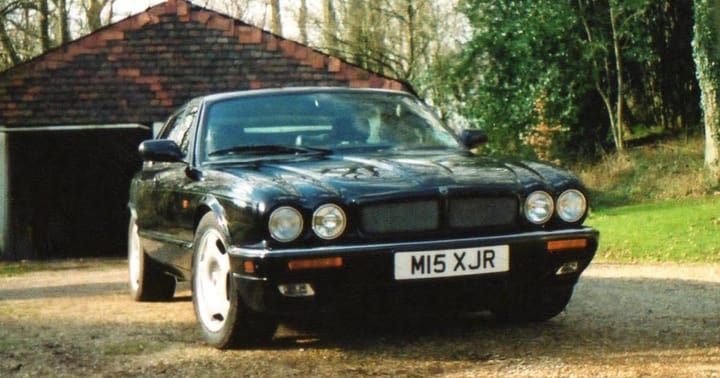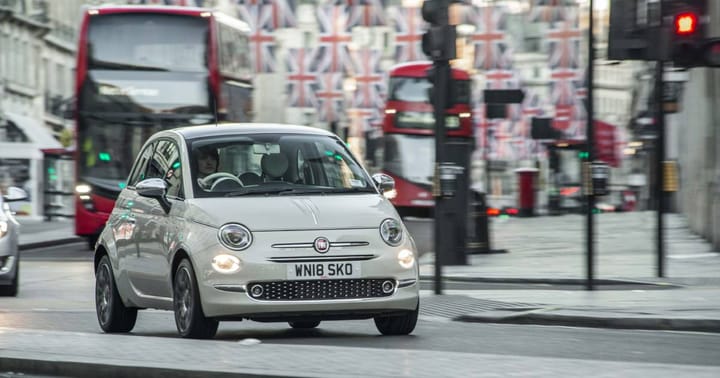There may not be an 'anti-car agenda', but how we drive is changing dramatically
People talk too much for most conspiracies to work, but that doesn’t mean driving is getting easier or cheaper

When looking at the myriad pieces of legislation that make driving a car more expensive and/or less convenient, it can be easy to come to the conclusion that an overarching 'anti-car agenda' is at play. But while in some ways it would be refreshing if those in power could manage so vast a feat of collaboration as would be necessary to achieve this, the reality is that people talk too much for such a thing to be possible, while national and local-authority projects are not always known for their cohesive and competent implementations.
This is not to say that discrete initiatives do not meet the description of being 'anti car'. Low-traffic neighbourhoods, for example, fit the bill on a logical, rational level, as these typically see residential roads closed to motorised vehicles, including cars, unless you’re lucky enough to live on one of these quiet avenues and can register your vehicle's number plate with the relevant authority. Given ‘agenda’ comes from the Latin ‘things to be done’, and LTNs often prevent private vehicles from using roads, I’d say they can accurately be described as 'anti car'.
An idea with arguably even a better marketing than the sweetly titled low-traffic neighbourhood is the 15-minute city. These sound fabulous, with the concept being that every home in the urban environment should be no more than 15 minutes’ walk, cycle or public-transport-trip away from all the amenities a person is likely to need on a daily basis.
But while a 15-minute city might be both achievable and agreeable in, say, Belgravia, it becomes a trickier in less advantaged areas, with parks, cafes, and indeed walking, less pleasant when in close proximity to a flyover, for example. Similarly, while a brisk 15-minute walk might take you a mile away from where you started, a 15-minute train ride could cover eight miles, which is a very different prospect indeed, and suggests the idea behind 15-minute cities is very flexible. Nonetheless, such schemes often involve either not prioritising cars in local transport strategy, or placing restrictions on their use in order to entice people to use other means of transport.
London’s Ultra Low Emission Zone and similar schemes elsewhere are arguably anti-car, too, specifically anti pre-Euro 6 diesel and anti pre-Euro 4 petrol cars – but anti-car, nonetheless. See also councils charging drivers for parking based on their vehicles' exhaust emissions. Proponents of such schemes might well say they are anti-congestion or anti-pollution, and while they would be justified in doing so, and discussions about improving urban air quality are most certainly worth having, it is not mutually exclusive for programmes like this to also be described as ‘anti car’.
These are all urban schemes, but the national picture is heading a similar way. My scepticism around policies mandating electric cars is hardly a secret, partly as they cost more and offer less freedom than their petrol and diesel siblings. As freedom is such an intrinsic part of a car’s appeal, it’s fair to say that the EV mandate is, ironically, anti car, or at least 'less car'.
EVs also present a massive headache to the Treasury, which currently gets around £35bn a year from taxes on petrol and diesel fuel. How do you replace that when everyone is charging rather than refuelling? Electricity is tricky to tax, as presumably different rates would be needed for someone charging up a car compared to boiling a kettle. An equivalence is already evident in policy, as the VAT rate for domestic electricity is 5%, whereas for public chargepoints it's 20%. That makes things rather tough if you have an EV you can't charge at home, which is hardly the manifestation of a pro-car policy inasmuch as how it relates to the democratisation of vehicles we have witnessed over the previous century or so.
Even if a domestic EV charger could see drivers taxed differently compared to the rest of a household's supply, people tend to be quite inventive when it comes to paying less money, particularly whey it goes to the taxman, and it wouldn’t take much to avoid any tax that were linked to a smart charger: a long, sturdy extension lead to a kitchen socket would do the trick, for example, albeit slowly.
The solution will almost inevitably be to deploy a national pay-as-you-go GPS-based road charging system, with the cross-party Transport Committee previously saying it has "not seen a viable alternative to a road charging system based on technology which measures road use". It is therefore likely to be a question of when, not if, per-mile pricing comes in. There is a strong argument that this is anti-car, as it will more likely than not make many think twice about when, where and how they travel; plus, do we really expect it to make driving cheaper?
It is impossible to deny that technology and policies mean there are scores more ways for drivers to be charged and penalised than there were, say, in the 1990s. Some may say that’s a good thing, and they are clearly more than entitled to do so – but it doesn't seem plausible to deny there are a fair few anti-car agendas at work, even if the primary motivation behind such schemes might not be intended in such a way.
If, like me, you consider that the car has done more to promote equality and stimulate the economy than any invention of the modern age, save perhaps the internet, this is a concern. And, even if you wouldn’t go that far, the majority of adults consider the car to be a good enough product to warrant spending significant amounts of money on it; I’d wager most people would prefer to travel by private car than public bus, if they were able to.
It is reasonable, therefore, to ask if the penalties, restrictions, controls and policies being enacted upon driving now and in the future are fair, and exist to improve life on an individual and national level. The nomenclature one uses to discuss this is hardly important, so if 'anti-car' doesn't sit right for whatever reason, we need to recognise and discuss that the changes being implemented to driving and cars are significant, and should be scrutinised.



